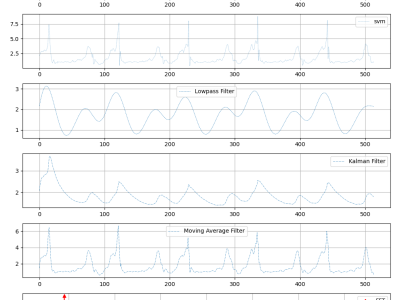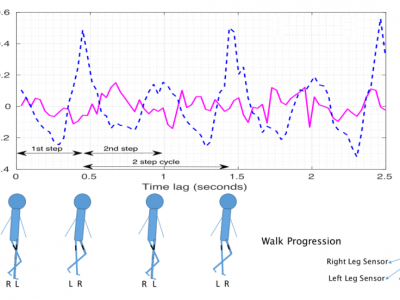Accelerometers
Walking-friendly cities not only promote health and environmental benefits but also play crucial roles in urban development and local economic revitalization. Generally, pedestrian interviews and surveys used to evaluate walkability, but this is expensive and lack professional insight. To address limitations in current methods for evaluating pedestrian pathways, we propose a novel approach utilizing wearable sensors and deep learning.
- Categories:
 99 Views
99 Views
Recently, there has been a notable shift to increasingly more sedentary lifestyles, yet it remains unclear whether inexpensive accelerometers, such as those contained in Actigraph devices, can provide consistent measurements of low magnitude accelerations. This study sought to explore the ability of two Actigraph models to differentiate low frequency oscillations, in reference to higher-end accelerometers with the idle sleep mode disabled (ISM) (Part 1) and enabled (Part 2) in a controlled environment.
- Categories:
 95 Views
95 ViewsThe PD-BioStampRC21 dataset provides data from a wearable sensor
accelerometry study conducted for studying activity, gait, tremor, and
other motor symptoms in individuals with Parkinson's disease (PD). In
addition to individuals with PD, the dataset also includes data for
controls that also went through the same study protocol as the PD
participants. Data were acquired using lightweight MC 10 BioStamp RC
sensors (MC 10 Inc, Lexington, MA), five of which were attached to
each participant for gathering data over a roughly two day
interval.
- Categories:
 10435 Views
10435 ViewsThis dataset is in support of my following Research papers
Preprint (Make sure you have read Caution) :
- Novel ß Transtibial Prosthetic 9-DoF Artificial Leg Adaptive Controller - Part I*
- Categories:
 2205 Views
2205 Views

